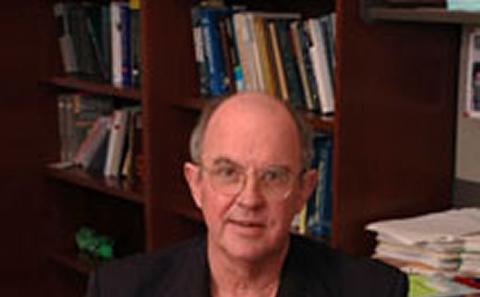Reimagining the Natural Protein World (with Total Chemical Synthesis) Seminar

For more information regarding this seminar, please email Dr Bruno Linclau at B.J.Linclau@soton.ac.uk .
Event details
Visiting Professor Stephen Kent presents a Distinguished Lecture at 4:00pm on 9 June 2014, followed by a drinks reception.
Total chemical synthesis of proteins was one of the ‘Grand Challenges' for synthetic organic chemistry in the twentieth century, and was met by the introduction of modern chemical ligation methods for the covalent condensation of unprotected peptide segments. The ability to prepare protein molecules by total chemical synthesis enables radically new kinds of protein science. For example, mirror image protein molecules can only be prepared by chemistry, and racemic protein mixtures crystallize more readily permitting X-ray structure determination of otherwise recalcitrant proteins. A protein molecule of novel topology, ‘ester insulin', was designed as a key intermediate for the efficient total chemical synthesis of human insulins. Synthetic erythropoiesis protein, a designed ‘glycoprotein mimetic' form of erythropoietin prepared by chemistry, has full biological activity and improved pharmacokinetic properties. Future adventures in the total chemical synthesis of novel forms of protein molecules not found in nature will be suggested.
Links to external websites
The University cannot accept responsibility for external websites.
Speaker information
Professor Stephen Kent, University of Chicago. Professor Stephen Kent has pioneered modern methods for the total chemical synthesis of proteins, and has used these novel synthetic methods for unprecedented studies of protein structure and function. In 1992, Kent effectively solved the grand challenge of total protein synthesis by introducing the 'chemical ligation' principle, the use of chemoselective reaction for the covalent condensation of unprotected peptides in aqueous solution. In 1994, Kent and his colleagues extended this concept to 'native chemical ligation', the amide-forming thioester-mediated covalent condensation of two unprotected peptides at a cysteine residue. Chemical ligation methods are a break-through in protein science and for the first time have led to practical, reproducible, and general synthetic access to the world of proteins. Kent's work has also led to major therapeutic advances. His synthetic HIV protease enzyme was used as the basis for the highly successful worldwide programs in structure-based drug design that culminated in the development of the 'protease inhibitor' class of AIDS therapeutics. Later, Kent and colleagues reported the systematic design and total chemical synthesis of a 'synthetic erythropoiesis protein', an improved version of erythropoietin. Synthetic erythropoiesis protein is the largest synthetic protein constructever made; it displayed full biological activity and improved duration of action in vivo. The Kent laboratory at the University of Chicago continues to expand our understanding the chemical basis of protein function, particularly enzyme catalysis, and to demonstrate that knowledge by the design and construction of protein molecules with novel properties. Professor Kent has received dozens of prestigious awards including the 2009 Merrifield Award and the 2011 Bader Award. He will be at the University of Southampton from 9 June to 20 June 2014 as a visiting professor.